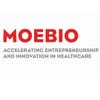CRAASH Barcelona, bringing innovation to patients
In 2018, coinciding with its fifth anniversary, Moebio has gone one step further, launching its second long program: CRAASH Barcelona. This initiative was created with the aim of helping research teams from Catalonia and other European countries successfully launch innovations to market in the fields of medical devices, diagnostics and e-health and digital health.
CRAASH Barcelona is a bootcamp program of EIT Health, the largest European health consortium, and is organized by Biocat in collaboration with CIMIT. The teams transfer their research to market with guidance from expert mentors from CIMIT (Boston), the most experienced healthcare accelerator in the world. In 15 years, CIMIT has successfully accelerated more than 600 healthtech projects, has doubled the product-to-market rate and has halved the time it takes to reach the next phase.
The CRAASH Barcelona teams validate the problems and solutions for their projects and how they fit the market in some of the best healthcare ecosystems in the USA (Boston) and Europe (Barcelona, Paris, Delft).
Biocat has opened the call for applications to the second edition of CRAASH Barcelona. The deadline for applications is 13 March.
This year, eight projects participated in the program, including ABLE, Biel Smartgaze and iBreve.
Low-cost exoskeleton
The Biomechanical Engineering Laboratory at the Polytechnic University of Catalonia (UPC), in collaboration with Institut Guttmann, is working to develop a light, low-cost robotic exoskeleton to help patients with spinal injuries walk again. Most of the exoskeletons currently available on the market are expensive, heavy, hard to use and don’t adapt to the patient. The ABLE (Assistive Biorobotic Low-cost Exoskeleton) project aims to change this with an affordable device that allows patients to actively participate in their own rehabilitation, at home or in a clinical setting. ABLE has received grants from Bstartup Sabadell and EIT Health (Headstart).
Glasses that ‘see’ on their own
Biel, like millions of people in the world, is a child with low vision. However, there aren’t any conventional glasses currently available to correct this problem. Tools like robotics and virtual reality make it technologically possible to create glasses that not only focus better but also show wearers like Biel the information in a way their eyes can see. Biel’s parents, a doctor and an engineer, are promoting Biel Smartgaze, a project to develop smart glasses using computer vision and virtual reality to improve visual perception for people with poor vision, making them more self-sufficient. The project has been awarded an EIT Health Headstart grant.
Stress-relief technology
Irish start-up iBreve is developing a portable device that analyzes the user’s stress levels and helps them control it through breathing. The device, designed for women, is worn on the user’s bra and analyzes breathing patterns, with immediate feedback to prevent stress from reaching dangerous levels. If this happens, the device warns the user that it is time to do some deep breathing or a short meditation to lower their stress level.
